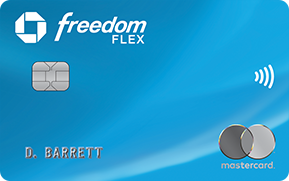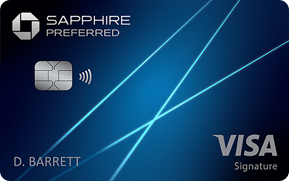- myFICO® Forums
- Types of Credit
- Credit Cards
- Statement date versus due date - Does it matter?
- Subscribe to RSS Feed
- Mark Topic as New
- Mark Topic as Read
- Float this Topic for Current User
- Bookmark
- Subscribe
- Mute
- Printer Friendly Page
Statement date versus due date - Does it matter?
Is your credit card giving you the perks you want?
Browse credit cards from a variety of issuers to see if there's a better card for you.
- Mark as New
- Bookmark
- Subscribe
- Mute
- Subscribe to RSS Feed
- Permalink
- Report Inappropriate Content
Re: Statement date versus due date - Does it matter?
@lshwn wrote:Thanks all! I obviously didn't ask my question the right way. Let me try again
I am paying down debt and not using my credit cards. If I have a credit card bill due the 10th of every month -- does it matter if I pay it 1-2 weeks beforehand? Or should I just pay it on the due date?
It's best to pay before the due date.































Total revolving limits 568220 (504020 reporting) FICO 8: EQ 689 TU 691 EX 682
- Mark as New
- Bookmark
- Subscribe
- Mute
- Subscribe to RSS Feed
- Permalink
- Report Inappropriate Content
Re: Statement date versus due date - Does it matter?
@NoMoreE46 wrote:
@lshwn wrote:Hello,
If I am paying down my credit cards and not using them. Does it matter if I pay before the statement close date? Or can I continue to focus on the due date?
Due date is usually a few days Before the statement close date. I am a litte confused.
The statement date is before the due date. The statement date is the at the end of the billing cycle. Then you usually have a few weeks (the grace period) before your due date which the date you must pay by or incur interest and late fees.
- Mark as New
- Bookmark
- Subscribe
- Mute
- Subscribe to RSS Feed
- Permalink
- Report Inappropriate Content
Re: Statement date versus due date - Does it matter?
@lshwn wrote:Hello,
If I am paying down my credit cards and not using them. Does it matter if I pay before the statement close date? Or can I continue to focus on the due date?
In addition to what others have posted about the statement close date, another reason a statement close date is useful to pay attention to is for those who want to raise their credit score. One's statement balance is due on or before the due date, which might lead one to believe they have a $0 balance if they pay in full. BUT - one may have made new charges since the current statement cut - that are NOT reflected in the current statement. So even if one pays their current statement balance in full every month, those new charges make up one's new balance - which, combined with whatever is left over after your Due Date payment, is the balance that is reported to the credit agencies! Maybe one's limits are lower than they like, so one way to raise a score is to reduce utilization. To do this, one can look up their total balance online, and pay the total balance down to BELOW 30%, 20%, 10%, or to zero - BEFORE the statement close date - depending on your ability and strategy (possibly keeping AZEO in mind). This will result in lower utilization being reported than would have been reported if one only took their due date payment into consideration, a higher credit score, and all the possibilities that come with a higher score. This extra payment can even be made after the due date - as long as you also made your planned due date payment, but has to post before the closing date. Note that there are a few cards that report your balance on a date other than your statement closing date, but most report your balance as of the closing date. cheers





 13Oct22 Exp F8: 812
13Oct22 Exp F8: 812
- Mark as New
- Bookmark
- Subscribe
- Mute
- Subscribe to RSS Feed
- Permalink
- Report Inappropriate Content
Re: Statement date versus due date - Does it matter?
@calisig wrote:In addition to what others have posted about the statement close date, another reason a statement close date is useful to pay attention to is for those who want to raise their credit score. One's statement balance is due on or before the due date, which might lead one to believe they have a $0 balance if they pay in full. BUT - one may have made new charges since the current statement cut - that are NOT reflected in the current statement. So even if one pays their current statement balance in full every month, those new charges make up one's new balance - which, combined with whatever is left over after your Due Date payment, is the balance that is reported to the credit agencies!
I'm confused by this! I thought that, with a few exceptions (Elan/US Bank reporting balance at end of month, Chase reporting when balance is zero) it was the statement balance that is reported to the credit agencies. Charges made after the statement cut won't appear till the next statement and so will be reported then, unless you have paid something before the cut.
- Mark as New
- Bookmark
- Subscribe
- Mute
- Subscribe to RSS Feed
- Permalink
- Report Inappropriate Content
Re: Statement date versus due date - Does it matter?
Your NEXT statement's balance - is the balance that will be reported. This is the reporting balance you still have control over - depending on how much you pay BEFORE your current statement's closing date. Your current statement's balance is the balance that was last reported ...





 13Oct22 Exp F8: 812
13Oct22 Exp F8: 812
- Mark as New
- Bookmark
- Subscribe
- Mute
- Subscribe to RSS Feed
- Permalink
- Report Inappropriate Content
Re: Statement date versus due date - Does it matter?
To piggy back what has been said. This really affects people with low credit limits.
Lets say you have a card with a credit limit of $500. The due day is the 10th and the statement cut is the 15th. If you pay your balance in full by the due date, you are avoiding interest, BUT anything you charge on that card between the 10th and the 15th is what gets reported. You may be doing everything right, paying off, avoiding interest never late, but if you have $400 worth of charges after the 10th and before the 15th, you've just reported a credit ultization of a whopping 80% keeping your score down and thus keeping your limits low.
It doesn't have nearly the same adverse affect with larger limits. Two people can have the exact same spending habits, have the exact same routine down to the penny, never spending more than that $400, but if one is using a card with a limit of 10,000 his credit utilization reported is a stellar, 4% thus usually enabling him to have more, whereas the second person is using 80% and thus a risk in the credit bureaus eyes.
Now if the 400 charge happens on the 16th, literally exact same scenario, then that low limit card is reporting zero.
So if you do have a card, and you use it for only a recurring whatever...pay attention to when that recurring hits, if it falls in that 5 day window, you are really screwing yourself with a high utilization if you have a low limit.
- Mark as New
- Bookmark
- Subscribe
- Mute
- Subscribe to RSS Feed
- Permalink
- Report Inappropriate Content
Re: Statement date versus due date - Does it matter?
Let's say your statement date was May 30, and your credit limit is $2000. Your May statement balance is $1000 = 50% utilization. You recieve your May statement on June 5 (but you could look it up online June 1). This - your May statement - is your current statement - even though you get it in June. Your payment due date is June 25. You pay your current $1000 statement balance IN FULL on or before your June 25 due date. BUT - you made $900 charges AFTER your current May 30 statement closed.
Question: What balance will be reported on June 30?
Answer: $900 - EVEN THOUGH YOU PAID YOUR $1000 STATEMENT BALANCE IN FULL by June 25! This = 45% utilization - not good.
So if you want to use your statement closing date to your advantage, you can look up your TOTAL BALANCE online on June 30, and pay an additional $320 = $580 reporting balance = 29% uitlization = good, or pay an additional $520 = $380 reporting balance = 19% utilization = better, or pay an additional $720 = $180 reporting balance = 9% utilization = maybe best, or pay an additional $900 = $0 reporting balance = 0% utilization = maybe best - before your June 30 statement closes.





 13Oct22 Exp F8: 812
13Oct22 Exp F8: 812
- Mark as New
- Bookmark
- Subscribe
- Mute
- Subscribe to RSS Feed
- Permalink
- Report Inappropriate Content
Re: Statement date versus due date - Does it matter?
@lshwn wrote:Thanks all! I obviously didn't ask my question the right way. Let me try again
I am paying down debt and not using my credit cards. If I have a credit card bill due the 10th of every month -- does it matter if I pay it 1-2 weeks beforehand? Or should I just pay it on the due date?
What are we talking about as far as "matter" goes? Does it matter....in what way? At any rate, here's what I do--and I have stellar credit: I pay all bills once a month; I do not pay multiple times per account per month; I pay AT LEAST one week (usually more) before each bill's due date; I never pay just the minimum, always more than that and usually PIF (pay in full). That's it! If you follow a similar routine, whatever it is you're wondering whether it matters shouldn't be an issue. ![]()














- Mark as New
- Bookmark
- Subscribe
- Mute
- Subscribe to RSS Feed
- Permalink
- Report Inappropriate Content
Re: Statement date versus due date - Does it matter?
@lshwn wrote:Thanks all! I obviously didn't ask my question the right way. Let me try again
I am paying down debt and not using my credit cards. If I have a credit card bill due the 10th of every month -- does it matter if I pay it 1-2 weeks beforehand? Or should I just pay it on the due date?
Is everyone missing this? The cards aren't being used! Why continue to round and round about statement date, closing dates, due dates, blind dates, first dates, etc....If the cards are being paid down, the sooner the better.
- Mark as New
- Bookmark
- Subscribe
- Mute
- Subscribe to RSS Feed
- Permalink
- Report Inappropriate Content
Re: Statement date versus due date - Does it matter?
@MrFiah wrote:
@lshwn wrote:Thanks all! I obviously didn't ask my question the right way. Let me try again
I am paying down debt and not using my credit cards. If I have a credit card bill due the 10th of every month -- does it matter if I pay it 1-2 weeks beforehand? Or should I just pay it on the due date?
Is everyone missing this? The cards aren't being used! Why continue to round and round about statement date, closing dates, due dates, blind dates, first dates, etc....If the cards are being paid down, the sooner the better.
I do feel like I'm missing something! How does that have any impact on the OP's question? Just because the OP isn't *currently* using the cards doesn't mean the cards have zero balances. They're paying them down, they're receiving bills every month, the bills have due dates, closing dates, etc. The OP still needs to pay these cards even though they're not adding new charges to them!













